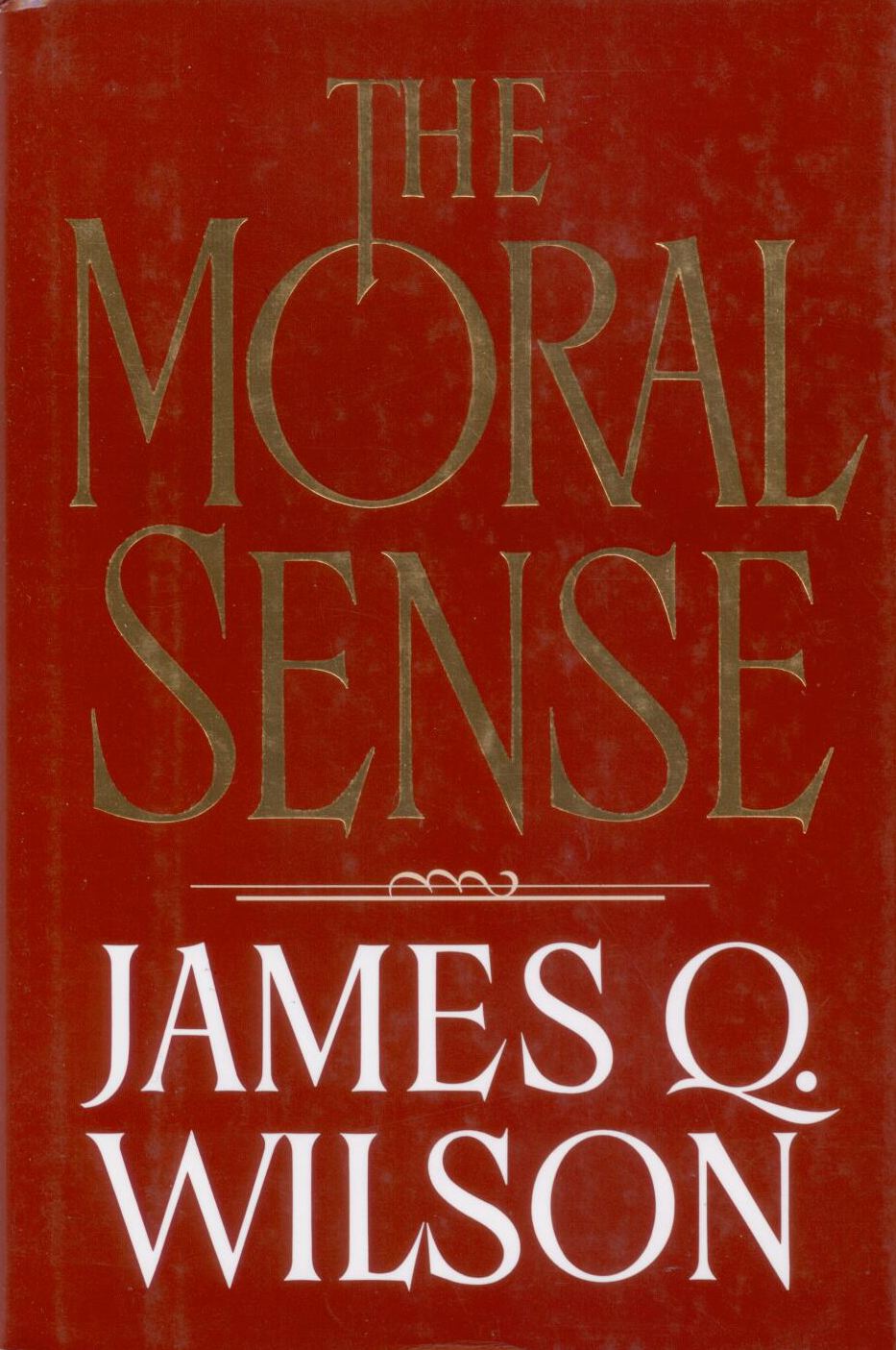James Q. Wilson, The Moral Sense (The Free Press, 1993, 1995; paperback edition 1997, 1998).
“The Moral Sense towers tall and apart on the Wilson skyline. It seems not to be about politics or policy at all. Its subject is benevolence: how self-interested human beings come to consider and promote the welfare of others, even when doing so is costly to themselves. This he calls the moral sense to emphasize its weakness and vulnerability among human motivations—it is ‘a small candle flame … flickering and sputtering in the strong winds of power and passion, greed and ideology.’ He is dissatisfied with the neo-Darwinian explanations of ‘reciprocal altruism,’ because people often act on their moral sense when others cannot reciprocate and when no one is even aware of what has transpired. The moral sense, Wilson demonstrates, is genuinely altruistic, and it originates in the family. The human child is utterly helpless for a long period, and then must be instructed on how to behave cooperatively within the family. Children are weaned from their natural self-centeredness by being taught to share with siblings and to respect their elders. Family socialization nurtures sympathy—the capacity to imagine oneself in the position of others and identify with their interests. That capacity is then progressively extended, partially and contingently, to relatives, neighbors, friends, group mates, colleagues, and even strangers.
“The Moral Sense is a great work, certain to endure. It really does merit its frequent comparison to Adam Smith’s Theory of Moral Sentiments. It is the fullest realization of Wilson’s inspired, capacious scholarship—here beginning with the philosophic accomplishments of Aristotle and Smith, then extending and modifying them with an astounding exegesis of hundreds of subsequent works of philosophy and history and of contemporary social and natural science. And, as Wilson’s thesis takes shape, the reader begins to realize that it is, in fact, highly relevant to politics and policy. Politics is heavily dependent on action for the polity as a whole—from voting to statesmanship to the enormous personal sacrifices required to run for president, which dissuade many seemingly worthy prospects. More important, public policy is heavily dependent on the family. The breakdown of the family in contemporary America, it is increasingly clear, is a fundamental cause of social disorders, from drug addiction to declining educational attainment to welfare dependency, which government can affect only very imperfectly and at great cost. If the family is the source of moral sensibility and good character, then it is the sine qua non of effective politics and policy.”
Christopher DeMuth
Online:
Google Books

